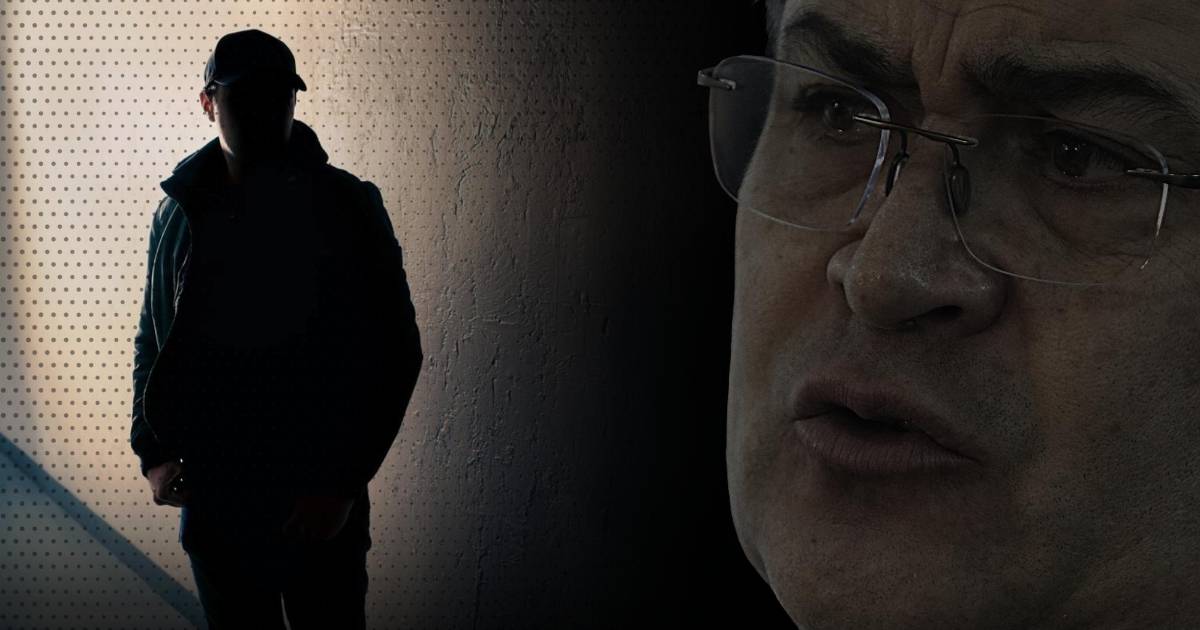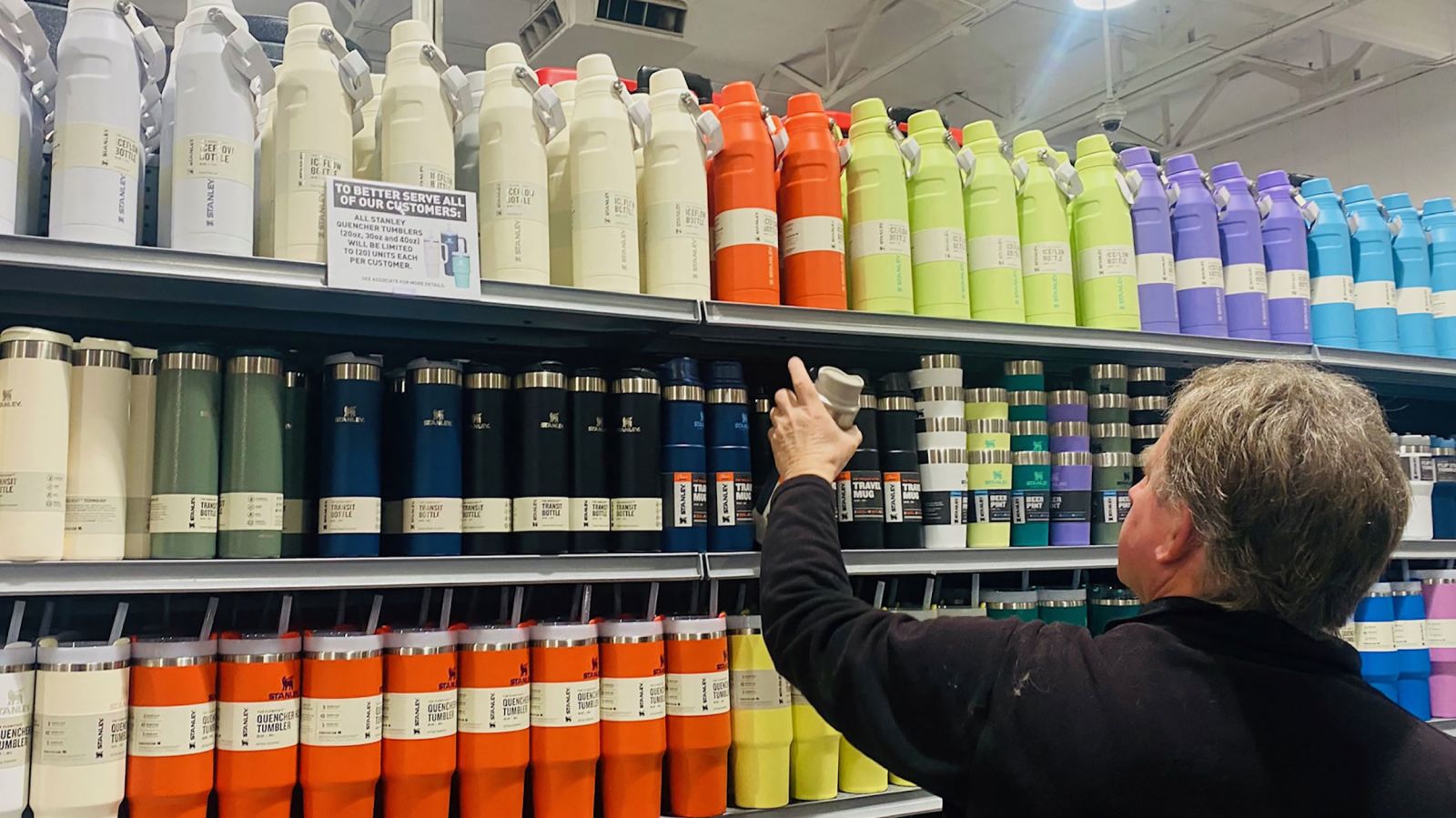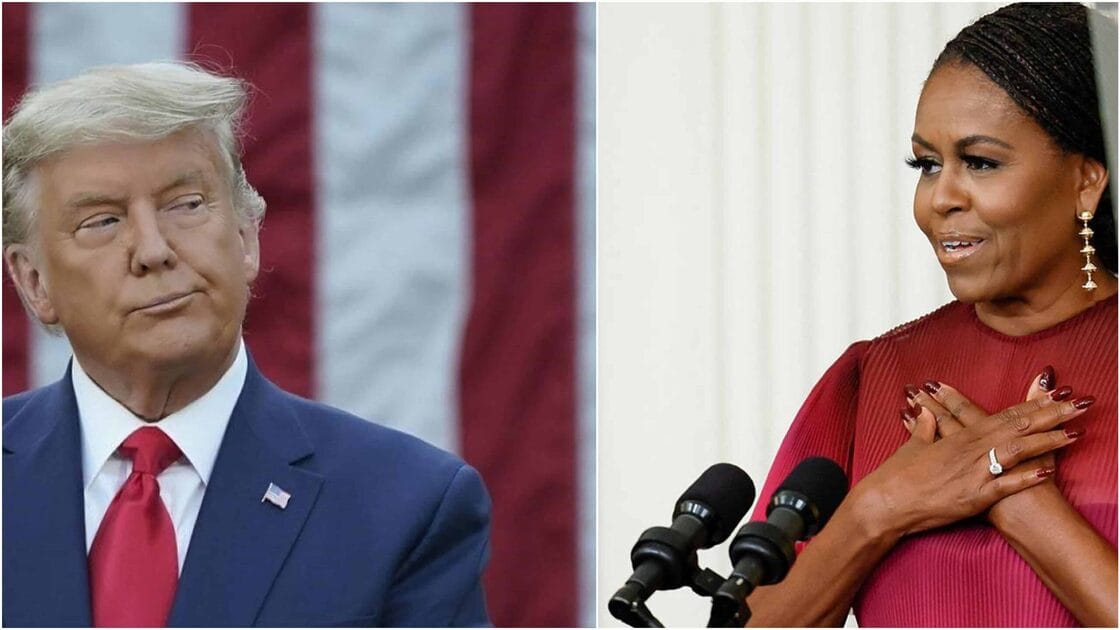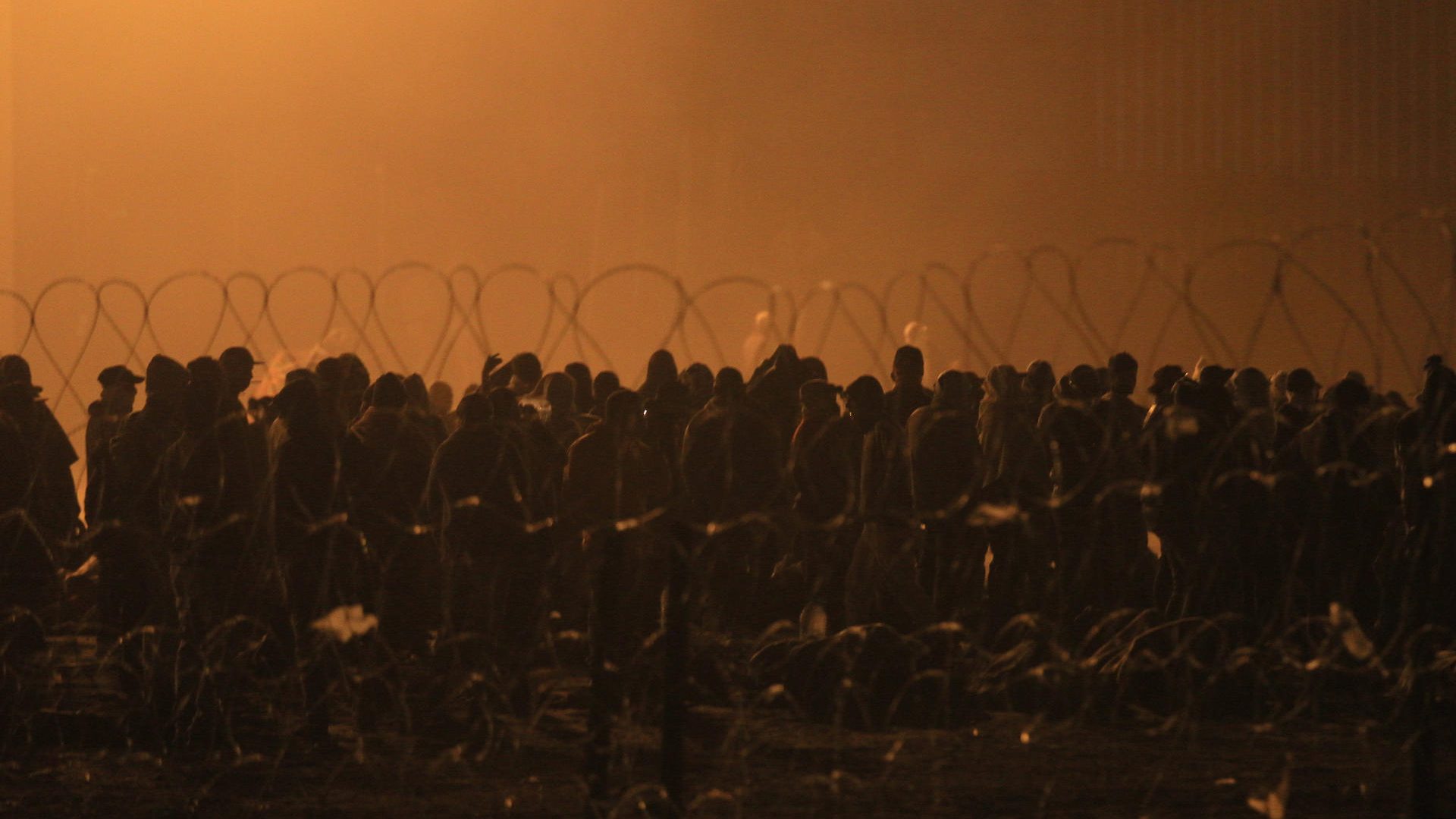“I assure you that JOH should not even sleep; Going on trial is suicide”: Honduran extradition

“When they put the orange uniform on me, I said: Today I feel like a prisoner. Inside the cell, one just thinks and thinks; the days are long and it seems that you will never go out.
This is the story of a Honduran who was extradited to the United States for drug-trafficking-related crimes. Years after regaining his freedom, he spoke exclusively to LA PRENSA PREMIUM about everything he experienced.
The citizen, who spoke on condition of anonymity, served time in a federal prison in New York after pleading guilty to crimes related to cocaine trafficking in the United States.
His first days behind bars were spent at the Metropolitan Detention Center (MDC), a federal prison in Brooklyn, where former President Juan Orlando Hernandez is currently being held, who will soon face charges of being a drug-trafficking conspirator to the United States. states and two other offenses related to possession of arms.
In that cold prison, inmates live in a narrow cell, are mostly isolated and must clean their own space.
MDC of Brooklyn, New York.
Our interviewee described the psychological pressure he felt from the moment he boarded the DEA plane to be transferred to New York, as well as the moment they dressed him in orange and held him in isolation for 15 days without a lawyer, and more. His family knew about his situation.
“I left Honduras on a DEA plane. The flight lasted about six hours. We arrived at night at an airport in New York, which I don’t know what it is; They were waiting for me and drove me to Brooklyn Metropolitan Center in a van type vehicle guarded by DEA agents.
I arrived at about 2:00 in the morning, I was greeted by the guards of that center, they took my personal information, photos, they gave me identification with a prisoner number; Later they took off my clothes and gave me brown overalls.
At 3:00 in the morning, I think they took me to about the fifth floor where they receive people who are detained for the first time in that correctional facility, everybody was sleeping, they put me in a cell with another inmate.
At 6:00 am they opened the cells for breakfast and I saw that there were more prisoners, about 100 people of different nationalities. At about 9:00 a.m. a guard told me he was going to dress me up because I was going to court, so they gave me the clothes I was wearing again.
The US prison system is often harsh and isolates drug inmates from the outside world.
From the Brooklyn jail they put me in a van, I was handcuffed by my hands, feet and waist and they took me to court where we have to go through some tunnels,” he said.
In New York’s Southern District Court, agents from the Drug Enforcement Administration (DEA) were waiting for the accused, who said he did not know what was going on because he did not have a lawyer.
In his story he says that when he saw that nothing was happening, he decided to ask a guard about a lawyer and he replied that he should not worry because they would assign him one, that he would not enter a hearing with a judge. Without a defender present.
“After waiting for an hour, my defender arrived, who, after visiting me, explained to me that the hearing was for the reading of the charges and that when the judge asked how I believed myself, I should answer “not guilty” and then he I’ll explain why. Although I didn’t understand at the time, the lawyer later told me that if he was convicted in the first instance, the judge had the option of a minimum sentence of 10 years in prison and a sentencing hearing, an option for nothing. “But at that hearing, after the judge read me the charges and I pleaded not guilty, he scheduled another hearing for me in three months,” he said.
“They returned me under guard, and when I got to the Brooklyn jail, the next day, they took me up to about the 10th floor. I was handcuffed, they put me in orange clothes. That uniform is only worn by inmates when they are taken to the punishment floor known as shoe. They put me in a 2×2 cell, only a bed fit, which is like a metal platform for two people, a small shower, a toilet with a sink, they gave me a quilt for cold, toothpaste, soap, toilet paper , towels and one of them takes care of it. To keep the cell clean,” he explained.
“I was in that cell for 15 days, I only went out in the sun for an hour, and from there you start thinking. Your head is spinning because you don’t know what’s going to happen and you’re disconnected from the world. You were only chained as you were led into a courtyard fenced by cyclone nets. They made me walk around in one of the three small courtyards of the prison and was forbidden to talk to other prisoners. After being in the punishment cell, I was moved to a Manhattan jail cell on a floor that had a large prison population,” the Honduran said.
“That prison was unsanitary, it was infested with rats. The cell was small, and the shower was outside and shared. It has a common room with a television, a computer where you can write with the family and a telephone, but everything is ‘ripto’, you have to pay for every minute of the call. During that time I could see Joaquin “El Chapo” Guzmán from a distance. That was when they took him down to visit his lawyer or. When that happened, they would lock us all in cells,” he recalled.
“After the first hearing, the process begins with the defense attorney and the prosecutor. They bring me documents, supposed evidence and you discuss it, then there is a hearing to make requests, to ask for something or to change the defense counsel. The prosecution, through the defender, sent me to ask what I want to do, but there are only three options: cooperate, go to trial or plead guilty to whatever they offer,” he explained.
“My lawyer was sincere and told me: “You can’t get out of here, you are already one of them, what we have to do is to see what best part we can get out of this whole process,” but I insisted. For the trial Going because it would show him that in that evidence, I didn’t appear with drugs, but the lawyer told me: “It’s a conspiracy.”
According to the Honduran, a private lawyer charges $100,000 (L2.5 million) for a first hearing in a conspiracy case and another penny to go to trial, so from the beginning he had no choice but to go public. a lawyer
He explained that he had a photograph and some videos of him with other people as evidence, and his lawyer told him that any of them would, in the end, become witnesses and would always face up to life in prison or go to a jury trial.
“I kept looking at the evidence and said to the lawyer, show me where I am; Show me photos, phone calls, wiretaps, but the lawyer told me it was a conspiracy,” he said.
“I kept insisting on going to trial and the lawyer told me he would come back when he calmed down. “I felt helpless because it was the entire government machinery against you,” he added.
“During the time of those negotiations I could not talk about my case with other prisoners, because my legal representative told me that anyone inside the prison can be an accomplice to negotiate a sentence,” he added.
“All the lawyers out there direct one to plead guilty, because they assure us that going to trial is suicidal, because you only have a one percent chance of winning. My lawyer later told me: “Send the prosecutor to ask if they want to cooperate, but I told them what I was going to cooperate. I didn’t know anything and I wasn’t going to lie, because my family is in Honduras. He insisted that I had myself to blame. “I always asked my lawyer where the evidence was, where the drugs were,” he continued.
At the end of nearly 11 months, the Honduran pleaded guilty to a charge of conspiracy to traffic cocaine and was given a relatively light sentence considering the moment he was caught.
“The prosecution gave me only one week. After the offer, there is no sleep thinking about it. I assure you that Juan Orlando must not be sleeping, to go on trial there is suicide. Others board the boat who are sinking and who want to get out,” he said bluntly.
After signing the agreement, he was before a judge two days later.
Before that appointment, the lawyer recommended that since he pleaded guilty, he should testify before a judge. He told her: “You have to show the judge that you’re sorry and if you don’t, he won’t accept you.”
When the Honduran pleaded guilty before the judge, another sentencing hearing was scheduled.
The sentence was based on a scale represented by the number of years compared to that drug trafficker.
Sentences range when defendants have already entered a plea bargain and can range from 0 to 20 years, 5 to 40 years, and 10 to 30 years, and are at the judge’s discretion.
When asked why his sentence was short, he suggested that in the end the judge analyzes all the documents, and based on that, gives the number of years in prison.
“There was no evidence against me and suddenly one of these cases was missed, but since it’s a conspiracy it drags him into everything,” he noted.
His sentencing date was rescheduled twice and when it passed he was attended by psychologists who decided whether he was fit to face years in prison. They also tried to learn more about the work and family environment where they lived in Honduras.
After receiving his sentence, a month later, once convicted, he was transferred to another state prison and placed under the charge of the Federal Bureau of Prisons (BOP). He was transferred to a minimum security prison.
The facility housed about 1,500 inmates, mostly Latinos, with English programs, schools for refrigeration workshops, welding, and recreational options.
After serving his sentence, he was picked up by immigration and taken to a detention center where he spent less than a month before being deported.
“Coming back after being locked up for a long time, it feels different, but I don’t regret the blame because otherwise I would still be there,” he concluded.
(TagsToTranslate)Trial of Juan Orlando Hernandez
Source link




:quality(85)/cloudfront-us-east-1.images.arcpublishing.com/infobae/7CNEHYDNTFAWDP4IEFD2EHNV6Y.jpg)
